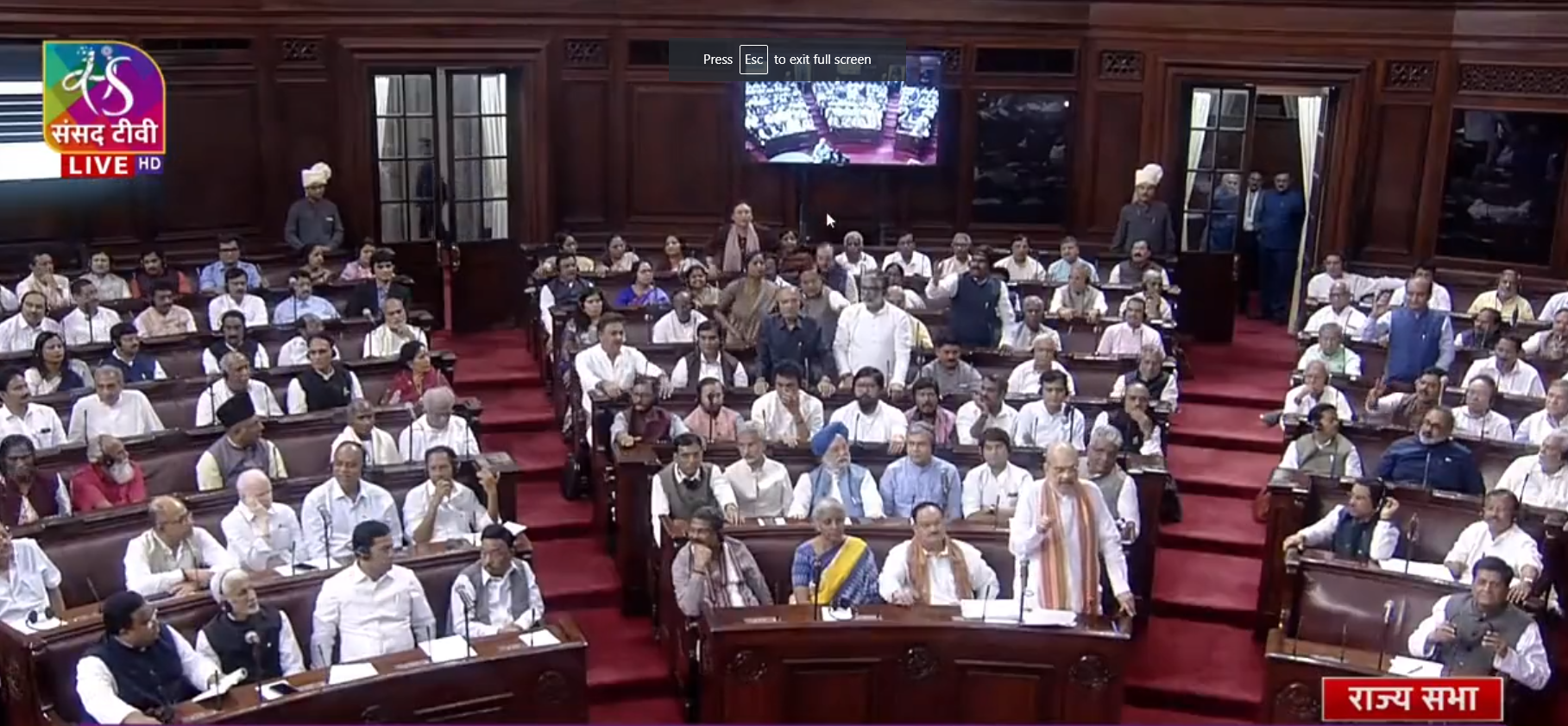The Rajya Sabha on Monday, successfully passed the National Capital Territory of Delhi (Amendment) Bill, 2023 granting the Lieutenant Governor of Delhi authority over Group A services within the capital, encompassing aspects like appointments, transfers, and postings. The bill’s approval followed a division, with 131 MPs voting in favor and 102 against the measure.
The opposition called for a division after an extensive eight-hour discussion on the National Capital Territory of Delhi (Amendment) Bill, 2023, presented for consideration by Home Minister Amit Shah.
Parties united under the I.N.D.I.A alliance expressed opposition to the bill, despite its passage in the Lok Sabha the previous week.
Owing to a glitch in the automatic vote recording mechanism, the voting was conducted via slips. Rajya Sabha Deputy Chairman Harivansh declared the division’s outcome, stating, “Subject to correction, it is 131 Ayes and 102 Noes.”
Addressing the bill, Union Home Minister Amit Shah highlighted the Constitution’s empowerment of Parliament to enact legislation for Delhi’s National Capital Territory. He affirmed that the bill adheres to the Supreme Court’s directives, with the primary goal of ensuring a corruption-free administration in Delhi.
Shah added that during the tenures of both the BJP and Congress in Delhi, there were no disputes regarding transfer postings and no Chief Ministers faced issues. He emphasized that the central government does not seek to seize power unnecessarily, as the mandate and authority were bestowed by the people of India.
Thirty-four MPs from various parties participated in the National Capital Territory of Delhi (Amendment) bill’s debate. Commencing the discussion, Congress leader Abhishek Manu Singhvi criticized the central government’s stance and opposed the bill, labelling it “retrogressive” and “entirely unconstitutional.” He contended that the bill infringes upon the rights of the people of Delhi and undermines the principles of federalism.
In response, BJP member Sudhanshu Trivedi refuted the opposition’s allegations and defended the bill’s provisions. He argued that the ordinance and subsequent bill were necessary due to the AAP government’s extensive and arbitrary transfers within bureaucracies, particularly in departments handling corruption-related cases.
Nominated Rajya Sabha member and former Chief Justice of India Ranjan Gogoi expressed support for the National Capital Territory of Delhi (Amendment), asserting its correctness and appropriateness.
AAP leader Raghav Chadha denounced the Delhi Services Bill as a “political deception,” a violation of the constitution, and an administrative impasse.
The legislation establishes the National Capital Civil Services Authority, composed of the Chief Minister, Chief Secretary of Delhi, and Principal Home Secretary of Delhi. This body will provide recommendations to the Lieutenant Governor (LG) concerning official transfers, postings, and disciplinary actions.
Furthermore, the bill bestows the LG with sole discretion over several matters, including those advised by the National Capital Civil Services Authority, as well as decisions involving the summoning, prorogation, and dissolution of the Delhi Legislative Assembly.
Additionally, the bill empowers department secretaries to bring contentious matters between the Delhi Government and the Central Government to the attention of the LG, Chief Minister, and Chief Secretary.
Also Read: Indian-Origin Vaibhav Taneja Takes Over as Tesla CFO After Zachary Kirkhorn’s Resignation


















